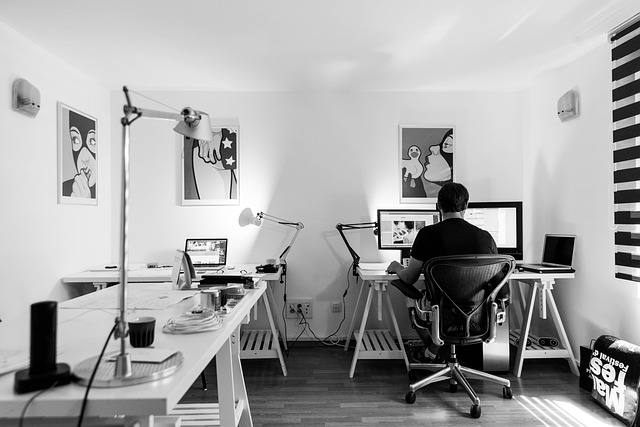Working from home has never been so popular. It brings a lot of freedom and opportunities but does have challenges. An increase in energy use for one.
It’s that I’m concentrating on today.
I have worked from home since 2007 and I haven’t looked back. Yes, I miss the social aspects of working in an office, but I don’t miss the commute, the bad lunches, vending machine coffee or office politics.
If you’re one of the millions of people like me loving working from home but are looking at higher energy bills as a result, there are a few things you can do.
None of them will save you a fortune, but they can lower energy usage enough to make a difference.
Manage your central heating
I don’t know about you, but I don’t do my best work when I’m cold. That means using the heating even if it’s just for a little while.
Lowering the temperature by 1 degree can save between £60-80 per year. I have mine set at 18C and it’s on for an hour in the morning and an hour in the evening.
I’ll run it more on really cold days but that’s it. I have an open fire for evenings, so there’s that.
You don’t have to go to that extreme but lowering your heating from 23C to 22C or even 21C to 20C can make a big difference.
Work by a window if you can
Working close to natural light has a ton of psychological benefits but it can also help keep you warm. You’ll use artificial light less too.
Work in a south facing room and you’ll be warmed by the sun when it’s out and receive all the psychological benefits natural light brings.
Alternatively, find the warmest room in the house or the room that can be insulated best and use that.
Only boil the water you need
If you’re powered by tea or coffee like I am, you’ll be using your kettle quite a bit. If you only boil enough water for your mug, the kettle won’t have to work so hard or burn as much electricity.
If you find you forget your drink while working and it gets cold, buy an insulated mug. I have a cheap one and it keeps my tea hot for up to 4 hours!

Claim your tax back
If you work from home, you’re entitled to a little tax relief. I mean a little too, £6 per week.
However, when every little really does count, that’s £6 better off in your pocket than the government’s.
Visit this page on the government’s website to see if you’re eligible.
Cook smart
Cooking can take quite a lot of energy so cook smart. Cook in batches so you can have a warm meal for lunch and dinner without wasting energy.
I’m a big fan of cooking in batches. I’ll cook a big pot of bolognese, chilli or shepherd’s pie mix, portion it into plastic containers and then freeze them.
Then I can simply defrost, prepare the rest of the meal and it’s done.
Cooking in batches is cheaper, saves a lot of work each day and ensures you’re getting nutrition with minimal effort.
My kind of cooking!
Dress for the season
Do you have friends or colleagues who will sit around in shorts and t shirts in winter and have the heating on full? I do.
While I doubt many of them will be running their heating as much this year, they are hardly dressing for winter.
Layer up, wear warm clothes, use cotton clothes more than other fabrics to let your skin breathe and wear warm socks.
You’ll have your own style and likes, so there are no rules here, just make sure you dress warm.
USB heating
If you still get cold, there are dozens of USB heated products, from gloves to desktop heaters. USB uses around 1p per hour of electricity so is very cheap to run.
If you’re buying from some marketplaces I could mention, make sure the device has a CE mark or reviews well. We all know the market can be flooded with cheap and often dangerous products, so let the buyer beware.
On really cold days, you can use a USB heater to keep yourself warm for cheap. If you’re using a computer for work, plug it into the computer and life becomes much more pleasant!

